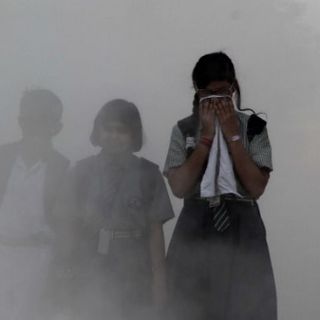Despite their significant presence in frontline work during the pandemic, women are still largely left out of Covid19 response and recovery plans, a survey of 17,000 people across 17 countries has found.
“People around the world recognize that gender equality is an issue of our time and that it is an issue that has been [made] more urgent by Covid19. We know that Covid19 threatens to roll back even the limited and hard-won gains that women have made,” Phumzile Mlambo-Ngcuka, head of United Nations Women, said at a virtual launch of the report.
Prepared by New York-based women’s rights advocacy group Women Deliver, and Paris-based research organisation Focus 2030 — the report found that while women make up 70% of frontline workers, they currently make up only 24% of the Covid19 response committees tasked with policy- and decision-making. The report also found that just 20% of the World Health Organization’s emergency committee members are women.
This is despite evidence suggesting that pandemic response efforts have been more effective when women are involved since they add perspectives that more fully represent the general population. Countries with women in leadership positions fared better amid the pandemic, as an analysis by the World Economic Forum (WEF) shows. “Our results clearly indicate that women leaders reacted more quickly and decisively in the face of potential fatalities,” Supriya Garikipati, a developmental economist at Liverpool University, who had co-authored the WEF study, had told The Guardian.
Related on The Swaddle:
Study: Women Journalists Have Produced More Credible, Trustworthy News on Covid19 Than Men
The Women Deliver–Focus 2030 report focused on Australia, Argentina, Canada, Colombia, France, Germany, Great Britain, India, Japan, Kenya, Mexico, New Zealand, China, South Africa, Switzerland, Tunisia, and the U.S. — collectively home to more than 50% of the world’s population. The report also included a survey of 17,000 people across 17 countries to gauge the impact of the pandemic on women’s lives.
Globally, more than 55% of the women surveyed reported experiencing some form of gender-based discrimination in their lifetimes; in India, 81% of women surveyed reported experiencing the same. Experts note the pandemic has only worsened women’s inequality and vulnerability — with rising cases of domestic violence and cybercrimes against women, as well as the disproportionate impact of the economic crisis.
One interesting finding from the survey was that eight in 10 responders — including men — supported the idea that improving women’s rights is a priority. 65% of them said their respective governments and business leaders should work towards ensuring the promotion of gender equality.
Titled Citizens Call for a Gender-Equal World: A Roadmap for Action, the report includes a host of suggestions for governments and policymakers to steer towards a gender-equitable future by addressing harmful gender norms through advocacy and public communications campaigns, eliminating discriminatory laws and enacting equitable policies, investing in gender-disaggregated data collection and analysis to inform policies, and applying a gender lens to the Covid19 response and recovery plans — reflective of overlapping inequalities, such as race and poverty.




